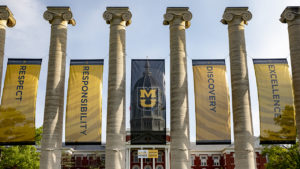Gallup poll: Only 36% of Americans have confidence in higher education
Confidence in higher education continues its decade-long plunge among Americans, according to the latest major public opinion poll.
The Gallup survey on four-year colleges conducted in June…

Confidence in higher education continues its decade-long plunge among Americans, according to the latest major public opinion poll.
The Gallup survey on four-year colleges conducted in June showed an “increasing proportion of U.S. adults [who] said they have little or no confidence in higher education.”
Those who have “some,” and “little or no” confidence in American colleges and universities stands at 64%, said the Gallup poll, while just 36% express “quite a lot” of confidence in higher education.
The survey of 2,000 Gallup panel members was conducted via telephone and online.
Democrats (52% confidence) and liberals (49% confidence) are the most optimistic demographic surveyed, but even Democratic confidence falls within a bare majority.
Seven in 10 Americans (68%) say that higher education is headed in the “wrong direction.”
By contrast, 57% of respondents told Gallup in 2015 that they “had a great deal or quite a lot of confidence” in higher education.
The survey showed Republican distrust of American higher education has been caused by suspicions that colleges and universities “are pushing liberal political agendas on students,” said Gallup.
“But the drop in confidence extends beyond purely political motives to questions about the relevance to the workforce of what students are being taught and the high cost of college. To the extent these views are held by parents and young adults, it could lead to drops in college applications and enrollment,” said the polling organization in a statement accompanying the survey results.
In a related survey, 48% of Americans told Gallup that they have confidence in two-year colleges and community colleges.
“Americans express greater confidence in community colleges than in four-year colleges and universities on each of seven aspects of higher education, including affordability, quality and the student experience,” said Gallup.
Just 18% have confidence that the cost of a four-year degree is worth it, while 81% express doubts that four-year degrees “provide an education that is worth the cost.”
Those numbers contrast the 55% of Americans who value community college degrees.
Community colleges outstripped four-year colleges by 21 percentage points in confidence of teaching “relevant skills and knowledge people can use in their jobs/lives.”
Community colleges also outpolled four-year colleges by 18 percentage points in confidence to “provide an education that will lead to a good job.”
Gallup called today’s confidence in the higher education industry a “record low.”
“Students want to see a return on their investment, and historically, universities don’t seem to be making cost or ROI changes fast enough,” Chris Morgan, an enrollment expert who works with colleges and universities, told Forbes.
Recent research by the Strada Institute for the Future of Work shows that 52% of college graduates end up under-employed in jobs not needing a college degree after one year, and that after ten years, the number only shrinks to 45%.
But many Americans see the threat of ideology propagated by higher education (“taking unfair advantage of the student’s immaturity by indoctrinating [them] with the teacher’s own opinions”) as something that has infected all areas of American life.
“America faces a formidable range of calamities: crime out of control, borders in chaos by design, children poorly educated while sexualized and politicized against parental opposition, unconstitutional censorship, a press that does government PR rather than oversight, our institutions and corporations debased in the name of ‘diversity, equity and inclusion’—and more,” said John Ellis, a professor emeritus of German literature at the University of California, Santa Cruz.
“To these has been added an outbreak of virulent antisemitism,” he added. “Every one of these degradations can be traced wholly or in large part to a single source: the corruption of higher education by radical political activists.”
That may be why only 15% of Republicans and 30% of Independents in the Gallup survey expressed confidence in four-year colleges.
The result has been that the number of undergraduates enrolled in four-year degree programs today is 1 million fewer than in 2018, according to Gallup’s research.



